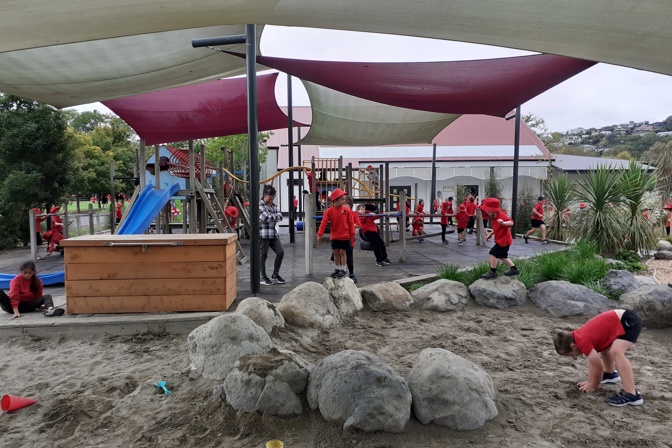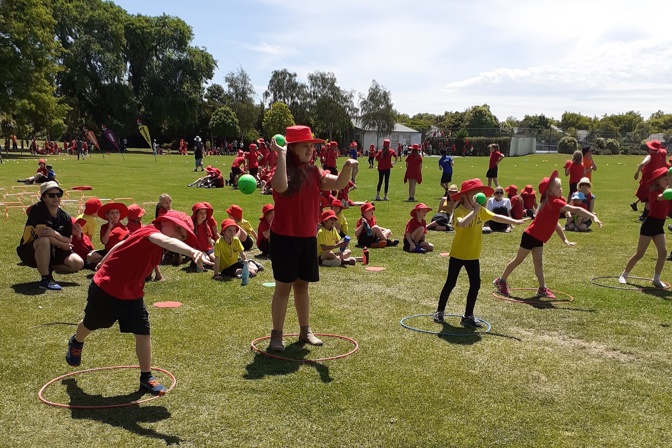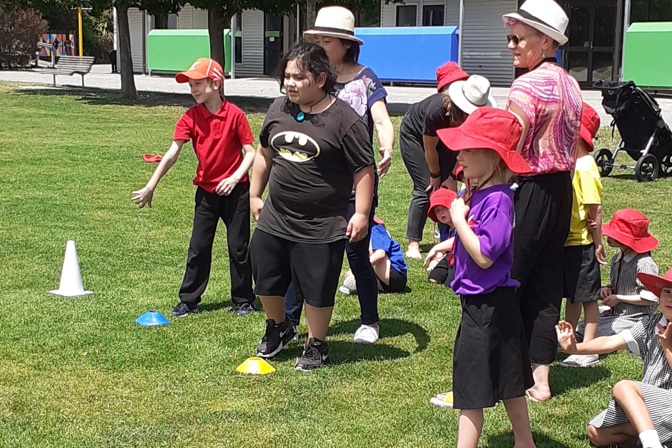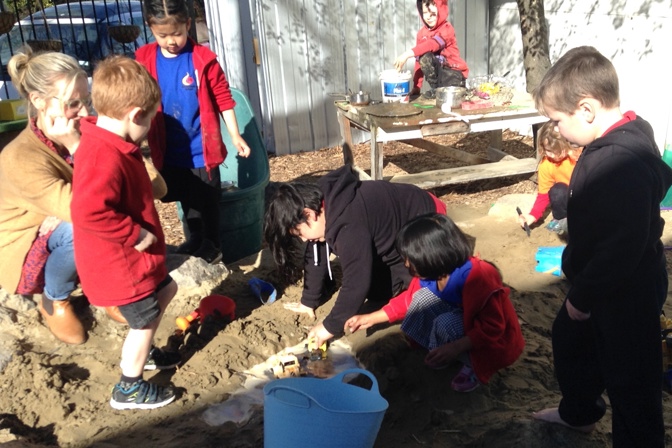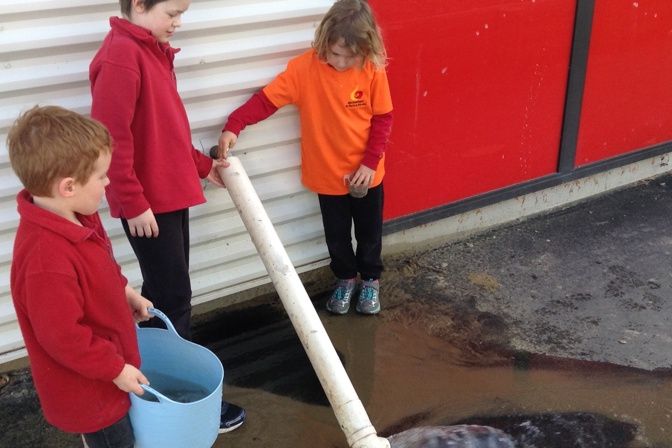Beckenham Te Kura o Pūroto and Ferndale School – Effective inclusive education partners
In 2017, Beckenham Te Kura o Pūroto and Ferndale School celebrated the opening of new satellite provision spaces. Since the opening, the schools have become effective inclusive education partners. This has been the result of careful planning, communication, and an openness to learning from each other.
New satellite provision spaces
Ferndale School has operated as a satellite unit at Beckenham Te Kura o Pūroto for nearly 30 years. When the opportunity arose to construct new satellite provision spaces, staff from both schools were involved in the building design process to ensure a collective voice.
Decision making during the design process was guided by the principles of Universal Design for Learning (UDL) along with a shared philosophy of ‘what works for Ferndale students works for Beckenham students’.
Inclusive features of Ferndale and Beckenham include:
- Ferndale spaces are a visible and connected part of Beckenham Te Kura o Pūroto’s environment.
- A calming and restful colour scheme throughout both schools with effective use of natural light.
- Contrasting carpet colours on stair treads and risers to support the visually impaired.
- A covered taxi drop off zone to provide shelter and accessibility for students as they arrive and depart.
Enabling partnership
The building of the new Ferndale satellite provision prompted the two schools to examine ways to strengthen their interactions and partnership.
In late 2017, Beckenham and Ferndale teachers attended a Grow Waitaha Inclusive Education Forum where they began a shared conversation around inclusive practices. Following this forum, both schools obtained funding from the Ministry of Education (MoE) to enable teachers to spend more time together to build relationships and identify partnership opportunities.
A useful starting point for both schools was sharing and finding commonalities in each other’s school vision and values to reflect a joint commitment to inclusive education. Staff then created a partnership agreement which includes desired outcomes for learners, personnel, and the wider community.
“We worked out what the benefits would be for Ferndale students, for Beckenham students, and the staff of both schools, the community, and within the wider picture. Essentially, we are looking for societal change… We are hoping that a long term impact would be a societal shift.” Esther Tomkinson, Deputy Principal, Ferndale School
Ministry of Education funding was used to release teachers from each school for regular meet-ups. Representative staff meet twice a term for in-depth hui where relationships are strengthened and learning opportunities are recognised. At these meetings, the partnership team discuss:
- practical arrangements such as timetables and calendars
- personnel issues including team building and induction processes
- teaching and learning opportunities
- professional development
- sharing of facilities and resources
- health and safety issues.
There are also informal ‘stand-up meetings’ held every fortnight to enable staff members to touch base and see how things are progressing.
Beckenham Te Kura o Pūroto has established a Diverse Learners Team to increase collaboration and connection between the two schools. One teacher from each learning team at Beckenham is a member of the Diverse Learners Team and their role is to be the ‘Ferndale Champion’. When Beckenham teachers are planning activities or special events, the Diverse Learners Team representative will look for opportunities to include or partner with Ferndale students and teachers.
Learning through play
One way that the two schools have become effective inclusive education partners has been through play-based learning.
In 2019 new entrant teachers from Beckenham Te Kura o Pūroto invited Ferndale students and teachers to regularly join their play-based learning sessions. This has developed into a reciprocal arrangement where Beckenham students also visit Ferndale to learn through play.
Teachers from both schools recognise the benefits of play-based learning and have collectively sought professional development with Longworth Education to explore best practice. Learning through play has become part of each school’s strategic plan and is jointly recognised as an effective developmental approach that supports inclusion and student led learning.
Additional partnership opportunities
The successful collaboration between the two schools around play-based learning has led teachers to seek additional partnership opportunities as described in the following examples:
- Ferndale is open at break times allowing staff and students from Beckenham to get to know Ferndale students and personnel on a deeper level.
- Ferndale staff were invited to take part in PB4L professional development with Beckenham Te Kura o Pūroto to grow a consistent approach to behaviour, learning, and wellbeing.
- Teachers from both schools have begun visiting each other’s classrooms to learn from each other. For example, a teacher from Beckenham observed Ferndale teachers working with children who have Autism Spectrum Disorder (ASD). This gave them strategies to support students with ASD in their own classroom.
- Teachers from Ferndale observed the teaching of literacy in Beckenham hubs which has grown the literacy practices within the specialist environment.
- Beckenham students have worked with Ferndale students to support them with their participation in athletic sports and development of social skills.
Top tips
Teachers from Beckenham and Ferndale share their top tips on being effective inclusive education partners:
- Actively plan time to build your partnership – Set aside time to plan how you will work together, protect this and make it a priority for both schools. Providing release time for teachers has allowed us to build an inclusive partnership at a deeper level.
- Seek out ways to align your learning – Rather than think about the differences that separate you, look to the things you have in common to build from. We extended interactions from buddy visits to structured play-based learning.
- Build relationships throughout your schools from leadership to students – There is a shared understanding and common language from the Board through to the students, the whole school recognises the value of the partnership.
- Plan and deliver PLD together – We offer each other deep insight and experience through PLD and look to work together often. Learning relationships sit with staff as well as students. We are growing each other's staff expertise.

